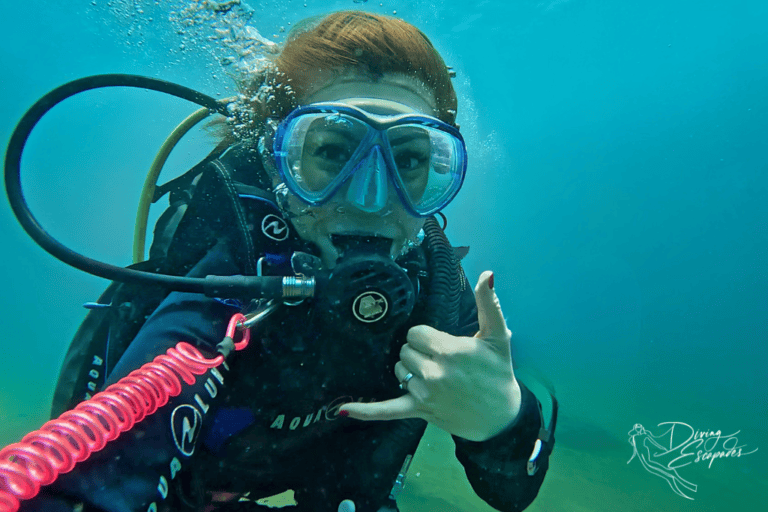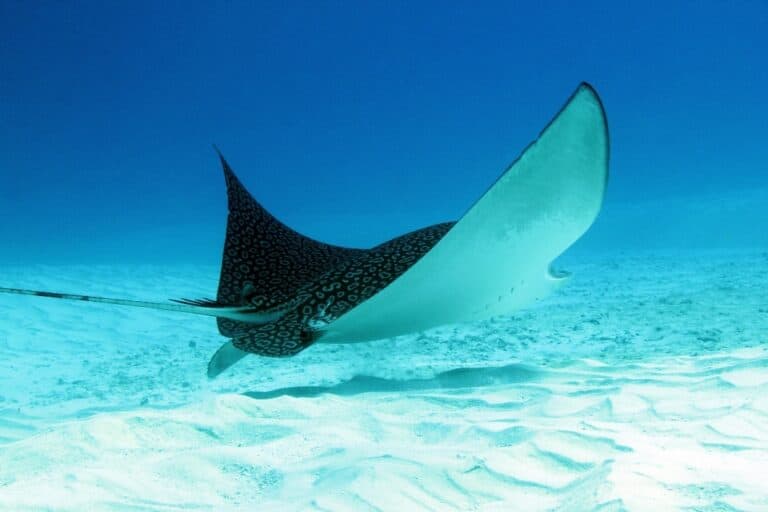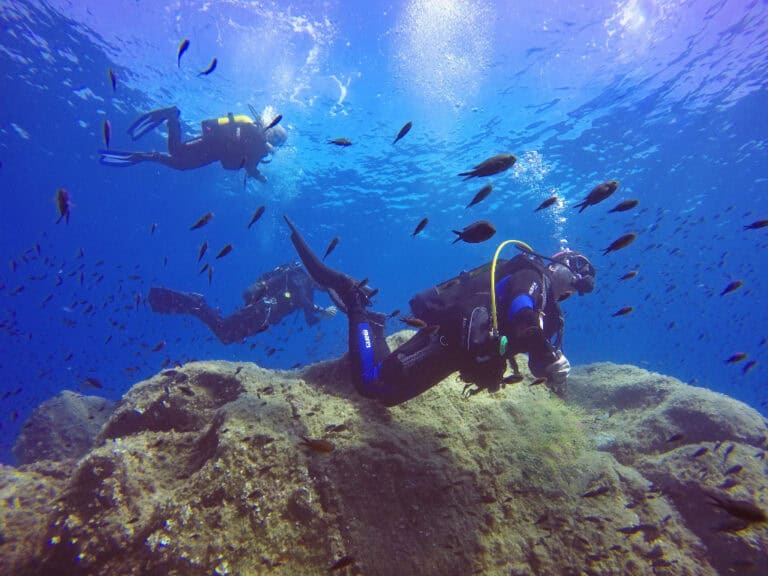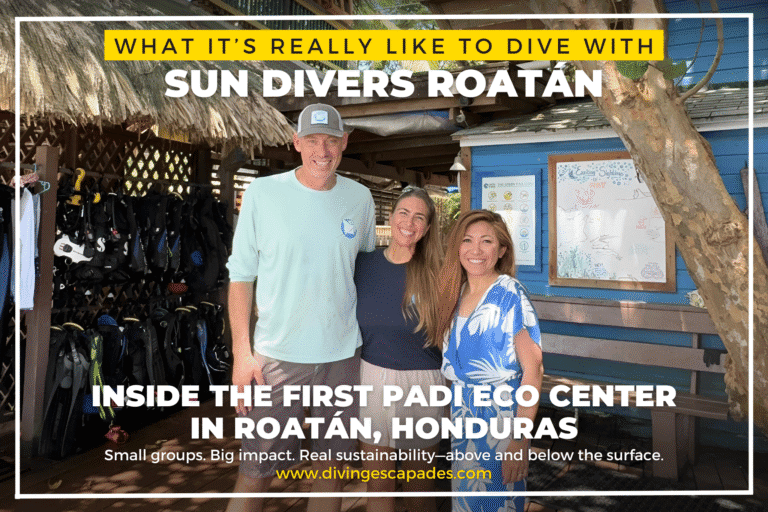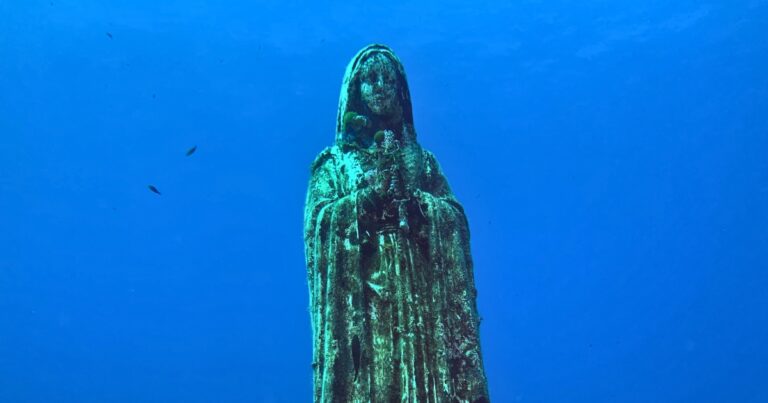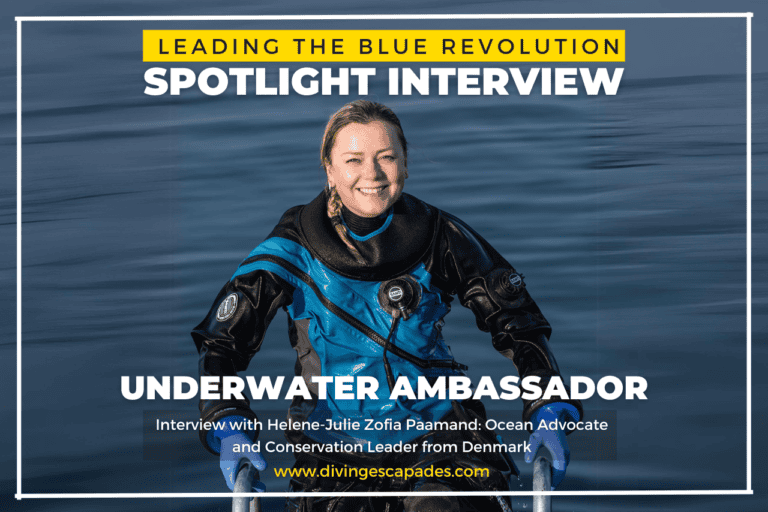Sustainable Diving: Why It’s The Ultimate Path Forward
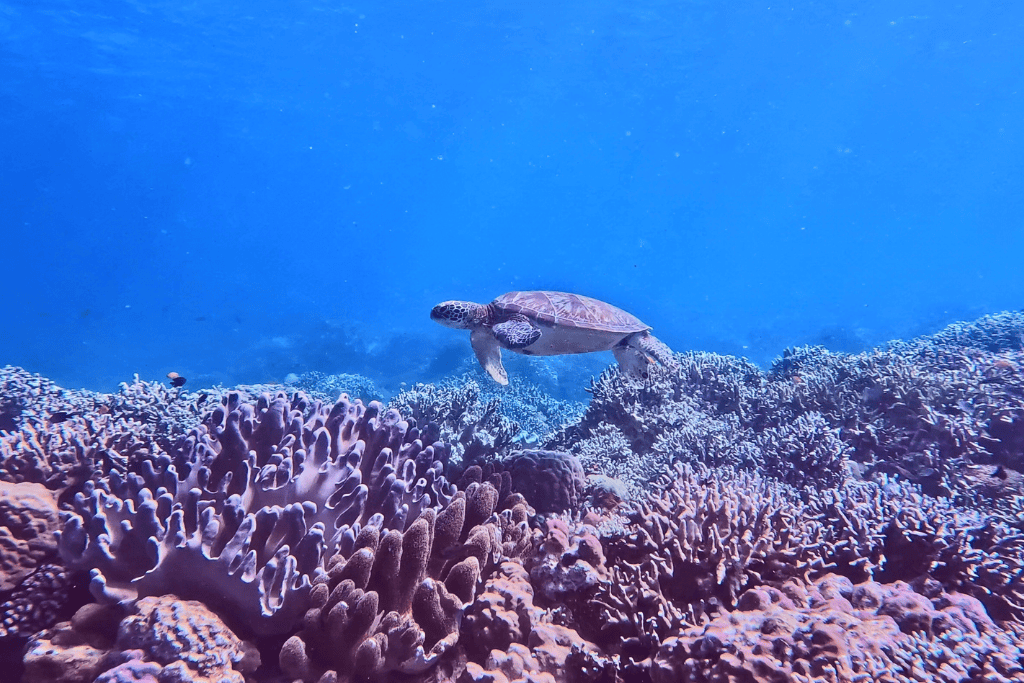

Sustainable diving, also known as “eco diving”, has quickly become more than just a trend – it’s the new gold standard for those of us who love the ocean and want to keep it thriving.
Over the years, after diving in some of the world’s most beautiful reefs, I have seen the impact firsthand – both the good and the not-so-good – which only highlights the importance of diving responsibly.
At its core, sustainable diving is all about those small, mindful choices that add up, from selecting eco-friendly dive centers to using reef-safe sunscreen. So, let’s dive into what it means to leave nothing behind but bubbles and make a positive impact with every descent.
What is Sustainable Diving
Simply put, sustainable diving is about immersing yourself in the beauty of the ocean while leaving no trace behind.
Whether it’s watching your fins, sticking to reef-safe sunscreens, or supporting eco-certified dive centers, sustainable diving means keeping the underwater world as pristine as possible.
Diving sustainably is not hard to do – it just means being a thoughtful guest in the ocean. If you’re already using eco-conscious practices, keep it up! And if not, you’ll find it easy to start making eco-friendly choices that enrich both your dive experiences and the health of our seas.
PRO TIP: Consider bringing along a TRSHBG for collecting any debris you might encounter during your dives. It’s a simple way to give back to the ocean while you explore.
Why Sustainable Diving Matters
Oceans are under serious threat – from coral bleaching and overfishing to pollution, marine life faces significant challenges. As divers, we’re lucky to explore these beautiful coral reefs and marine habitats up close. However, with that privilege comes a responsibility to protect these fragile ecosystems.
When we practice eco diving, we are not just diving for ourselves. In fact, we are diving for future generations of divers too.
A 2022 study by the Reef-World Foundation revealed that 95% of divers believe the industry should increase its conservation efforts.
By reducing our carbon footprint and minimizing marine pollution, sustainable diving directly supports the preservation of these critical habitats. It also strengthens the local communities and economies that rely on healthy oceans.
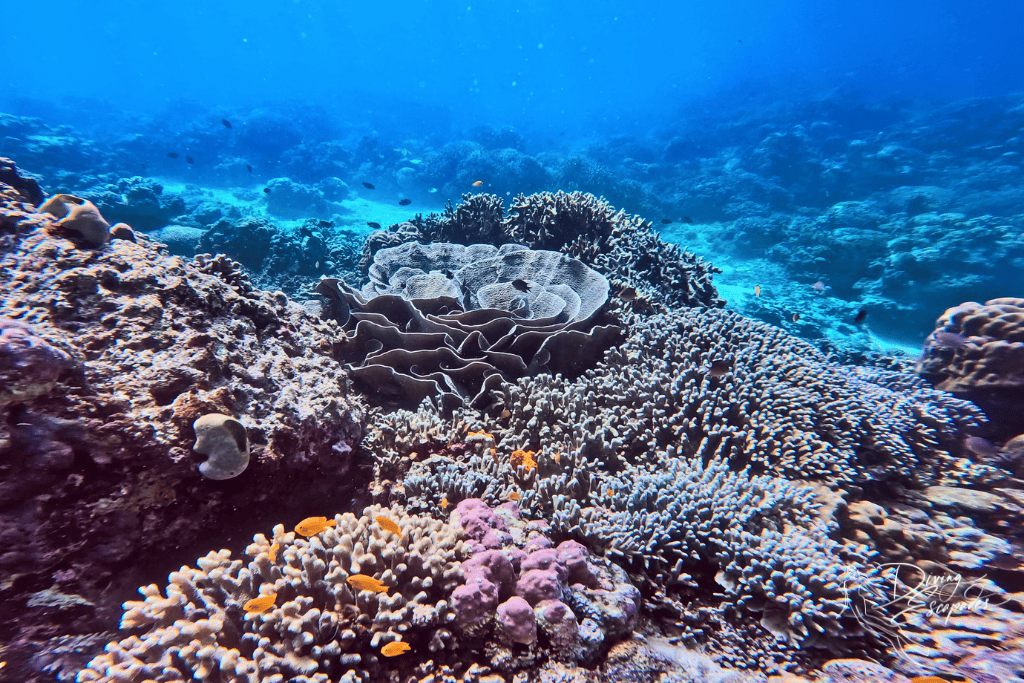
There’s also a clear advantage for dive businesses that adopt sustainable practices, as eco-conscious branding can attract more customers, making environmental sustainability beneficial both ecologically and economically.
By supporting sustainable diving practices, we’re helping ensure that our favorite dive spots thrive well into the future.
How to Choose Sustainable Dive Operators
As much as sustainable diving has grown, finding dive operators who truly prioritize eco-friendly practices can still be tricky. Luckily, you can look for the following eco certifications, which make spotting responsible dive operators easier:
Green Fins
Green Fins is a pioneering initiative dedicated to promoting environmentally friendly scuba diving and snorkeling practices worldwide.
Developed by The Reef-World Foundation in collaboration with the UN Environment Programme, Green Fins works to reduce the environmental impact of diving activities on coral reefs and marine ecosystems.
Green Fins-certified dive centers follow strict environmental standards, from waste management to diver education, so your experience stays sustainable.
PADI Eco Centers
PADI Eco Centers are diving facilities recognized by the Professional Association of Diving Instructors (PADI) for their commitment to environmental conservation and sustainable practices.
To qualify as a PADI Eco Center, diving facilities must adhere to a set of environmental standards outlined by PADI.
These centers promote sustainable practices, waste reduction, and reef conservation efforts. Many PADI Eco Centers also participate in reef cleanups, so if you’re interested in giving back, check their calendar and join in!
SSI Blue Oceans
SSI Blue Oceans is a sustainability initiative launched by Scuba Schools International (SSI). The program aims to promote environmental conservation and sustainability within the diving community.
It offers educational resources and certification programs focused on marine biodiversity, coral reef conservation, and responsible diving practices.
SSI Blue Oceans empowers divers like you to take proactive steps toward protecting our oceans and making eco diving part of every dive.
Blue Star in Florida Keys
Managed by NOAA’s Florida Keys National Marine Sanctuary, the Blue Star program recognizes dive operators committed to protecting the delicate ecosystems of the Florida Keys.
If you’re looking to dive in this area, choosing a Blue Star operator means you’ll be diving with a team dedicated to responsible tourism and reef conservation. Plus, you’ll learn how to dive in a way that helps protect these unique marine habitats for future generations.
Longitude 181
This French non-profit organization is dedicated to ocean protection through research, collaboration, and innovation.
They distribute the International Charter for Responsible Diving, an ethical code adopted by diving associations worldwide.
In 2012, Longitude 181 launched the International Guide to Eco-Responsible Diving Centers, which has evolved into a directory of over 200 member diving centers.
By choosing a Longitude 181-affiliated center, you’re supporting operators committed to sustainable practices and the preservation of marine ecosystems.
Other Sustainable Diving Operators
If the dive operator in your desired area isn’t certified or affiliated with sustainability initiatives like Green Fins, PADI Eco Center, SSI Blue Oceans, Blue Star by NOAA’s Florida Keys National Marine Sanctuary, and Longitude 181, don’t immediately dismiss them.
Instead, directly inquire about their eco-friendly practices, such as their use of reef-safe sunscreen, ocean clean-up initiatives (like the one below), efforts to reduce boat emissions, and involvement in reef conservation projects like this one.
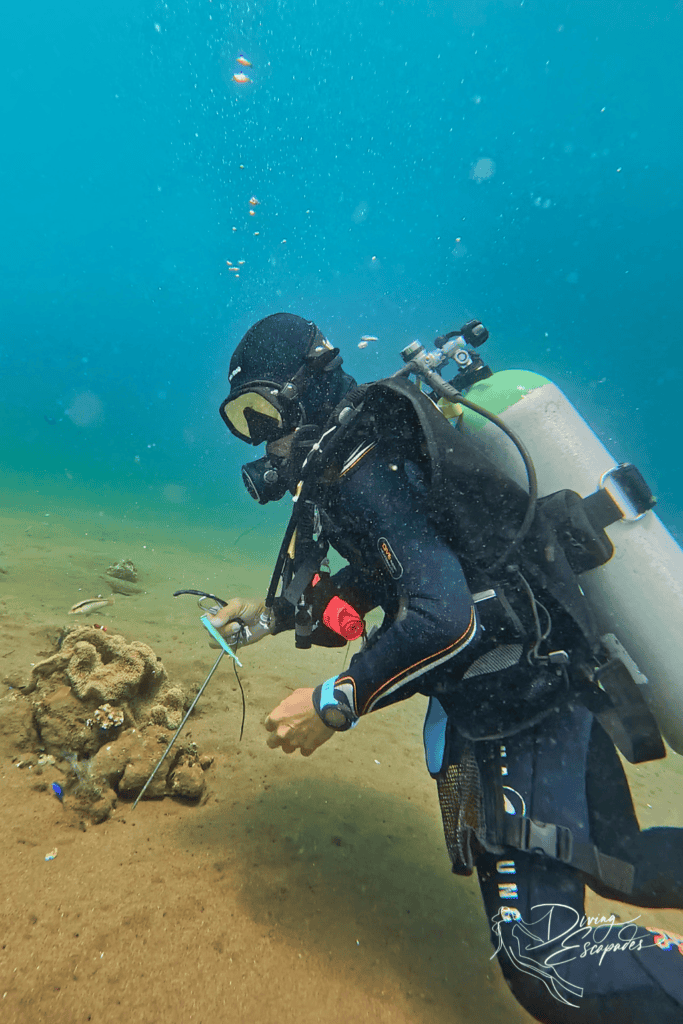
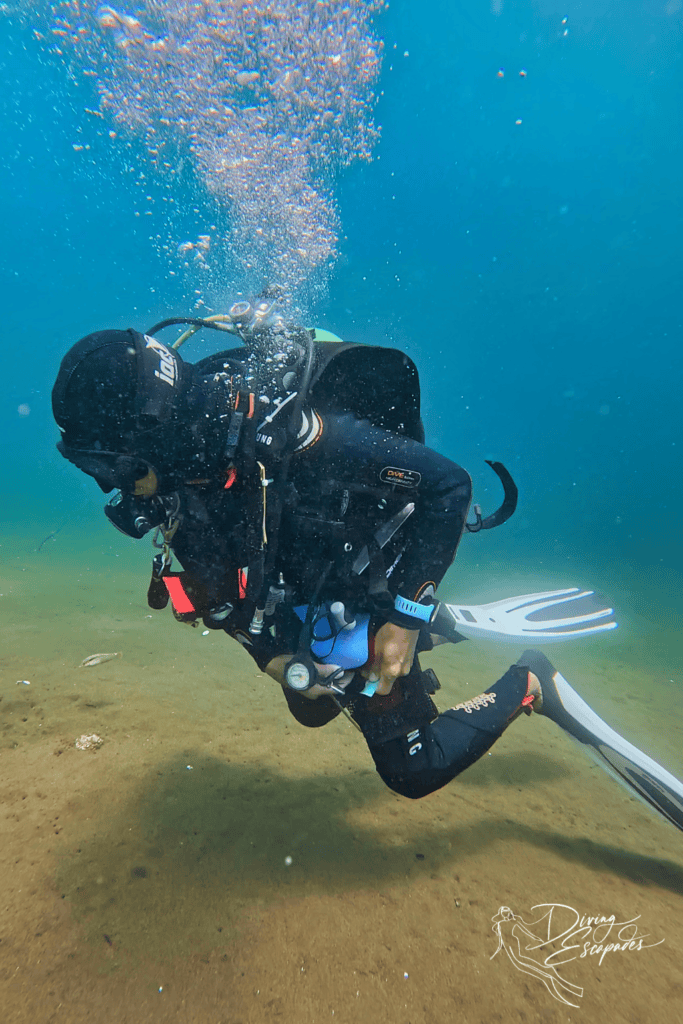
If they demonstrate a commitment to sustainability, they may still be a suitable choice worth considering.
PRO TIP: Ask if they’re open to eco-friendly suggestions, such as minimizing plastic use or setting up a beach cleanup. Operators genuinely invested in sustainability will appreciate your proactive approach.
Quick Tips for Sustainable Diving
1. Use Reef-Safe Sunscreen: Traditional sunscreens can harm marine life, so choose reef-safe alternatives.
2. Opt for a Rashguard: Wearing a rashguard is a great alternative to sunscreen. It protects your skin from the sun while reducing the amount of sunscreen entering the water.
3. Respect Marine Life: Avoid touching coral or marine animals. Fins can cause unintended damage, so keep them tucked and swim gently.
4. Reduce Plastic Waste: Bring reusable water bottles and snacks in reusable containers. Reducing single-use plastic helps keep our oceans clean.
5. Support Sustainable Dive Operators: Look for eco-friendly certifications and ask about their practices.
6. Participate in Clean-Up Dives: Many eco diving operators offer regular clean-up events. It’s an easy way to make a difference and have a great time with like-minded divers.
7. Carry an Ocean Clean-Up Bag: Bring along an ocean clean-up bag, like a TRSHBG, to gather any debris you encounter. It’s a simple way to actively protect marine life and help keep dive sites pristine.



The Wrap-Up
Ultimately, sustainable diving is more than a checklist of good habits – it’s a commitment to keeping our oceans healthy and thriving.
When you dive with eco-conscious operators and make sustainable choices, you’re joining a global community dedicated to protecting marine life and habitats.
Next time you’re gearing up for a dive, remember this: every small action adds up.
By supporting sustainable diving practices, you’re helping ensure that our beloved oceans stay healthy and thriving for years to come. Dive with purpose, and let’s make eco diving the new standard. Happy (and sustainable) diving!

